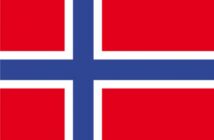After being tipped by many as the team to watch at Euro 2020, Turkey failed to live up to the expectations in spectacular fashion, but why did it go so horribly wrong?
As is so often the case in football, it’s the hope that kills you. After a stellar qualifying campaign in the build up to the European Championships, Turkey had an abundance of hope heading into the summer.
Senol Gunes had developed a system which any underdog should have, as he utilised the squad’s strong defensive players to be resolute out of possession, but also didn’t neglect their attacking flair either with the likes of Hakan Çalhanoğlu and Yusuf Yazıcı allowed to express themselves in the final third.
His side looked to have the perfect balance in the qualifying stages, winning seven of their 10 fixtures, including a 2-0 victory against reigning world champions France to see them comfortably finish second in the group. As a result, not only did the performances capture the imagination of the nation, but pundits and rival supporters backed them to be the dark horses before the tournament had even begun.
However, just 10 days after kicking off at Euro 2020 in the opening fixture against Italy, they find themselves out of the competition having picked up zero points in the group stages and scoring one goal in the process.
On paper, group A was always going to be difficult, especially considering the newly found form of the Italians, having come into the summer unbeaten in 27 games under Roberto Mancini. They were joined by Switzerland, who can prove to be tricky opponents on their day, and a Welsh side on a high after qualifying for consecutive European Championships for the first time.
Despite that, not many would have predicted what happened next. The warning signs were there from the first whistle against the Azzurri, as they starved Gunes’ men from the ball and suffocated them with relentless waves of attacks. They managed to hold firm until half-time, but the floodgates opened in the second 45 minutes.
As Turkey sat deeper, the pressure finally got to them. Merih Demiral turned the ball into his own net to give Italy the lead in the 53rd minute. Ciro Immobile quickly followed that up with a goal for himself to double their advantage before teeing up teammate Lorenzo Insigne 10 minutes before the full-time whistle to set the score at a fantastic 3-0 in Italy’s favour.
Gunes and his coaching staff were barking orders from the touchline in an attempt to get something out of his players, but rather worryingly it didn’t seem to make the slightest difference. His men were lazy out of possession and allowed Italy’s technicians in the middle to dictate proceedings which was ultimately their downfall.
To make matters worse, Turkey became the side that broke an unwanted record. Coming into the game, Italy had never scored more than two goals in a game at the European Championship finals. The Crescent-Stars looked lost defensively and offered no threat coming the other way, having failed to register a shot on target in the entire game.
Although it was glaringly obvious to some, there were still question marks over whether the result was down to the brilliance of the Italians or the woefulness of the Turkish, however, that was quickly put to bed by their display against Wales on matchday two.
This time around the onus was on them to take the game to Wales and perhaps was an opportunity for their more technical players to showcase their abilities, however even with 63% possession they were unable to create many clear cut chances.
In attack, Turkey looked disjointed, lethargic, and void of any creative imagination, which made their buildup very predictable for the Welsh to defend against. The once industrious midfield pivot of Ozan Tufan and Okay Yokuslu were made to look pedestrian like when they crossed the halfway line, as they struggled to break the lines of Robert Page’s organised setup.
They were at their most dangerous from set-pieces due to the quality of the delivery provided by AC Milan’s playmaker Çalhanoğlu and came close on a couple of occasions, but failed to find the back of the net again. However, even if they did look effective at the top of the pitch, all their efforts would have been in vain due to the disarray in defence.
Leadership and communication looked to be a real problem issue at the back, as Aaron Ramsey had threatened to get in behind their defence on multiple occasions in the opening exchanges, however, nobody was able to take control of the situation before the Juventus man punished them on the stroke of half-time.
For such an experienced coach on the international scene, Gunes had some real moments of madness in the buildup to Turkey’s second game, as he broke up defensive duo Demiral and Çağlar Söyüncü. The pair had been mainstays at the heart of the defence during qualifying and only conceded three goals, none from open play while keeping eight clean sheets during that time.
It was one of many decisions which could be deemed questionable by the 69-year-old and his tendency to tinker was certainly a factor in killing any momentum that his side could have gathered in the last two games. He made a further three changes for their final match against Switzerland and it was unlikely a win could have been enough to see them reach the Round of 16 in third place.
Instead, it was different players, same result. They quickly fell two goals behind following a slow start to proceedings, albeit this time around it wasn’t for the want of trying, but two moments of pure quality that separated the sides.
Haris Seferović’s strike from distance was arrowed into the corner to give the Swiss an advantage. Xherdan Shaqiri doubled it when he produced a moment of magic to curl his effort past Uğurcan Çakır.
Turkey was able to claim a consolation through İrfan Kahveci with his long-range shot continuing the theme of fine goals on the day which also spared their blushes of firing three blanks in a row. Shaqiri later put the game to bed with another sublime left-footed effort to ultimately end any chance the Crescent-Stars had of making a comeback and staying in the competition.
The result meant Gunes’ side joined 10 other countries who have failed to pick up a single point during the European Championships with their showing statistically the fifth worst. So where does Turkey go from here?
Undoubtedly, there’s still time for this young squad to develop into Turkey’s very own golden generation, as they possess an excellent crop of players, most of which are developing in Europe’s top five leagues. However, they need to be better drilled if they are to compete at the next major tournament.
Despite all the good Gunes has done for his country, his tactics looked outdated and uninspiring, therefore it might be time to welcome a new philosophy that can be moulded around the strengths of the team in years to come.
Follow us on Twitter @ProstInt
![Prost International [PINT]](https://prostinternational.com/wp-content/uploads/2021/08/PINTtFontLogoRoboto1536x78.jpg)


